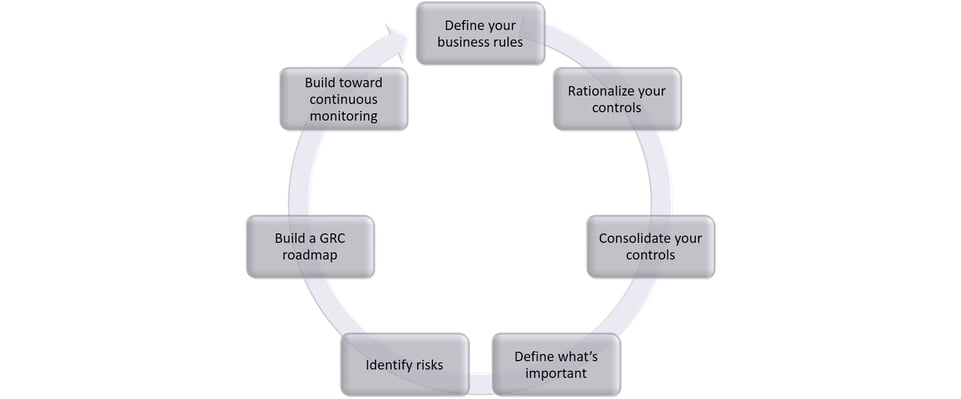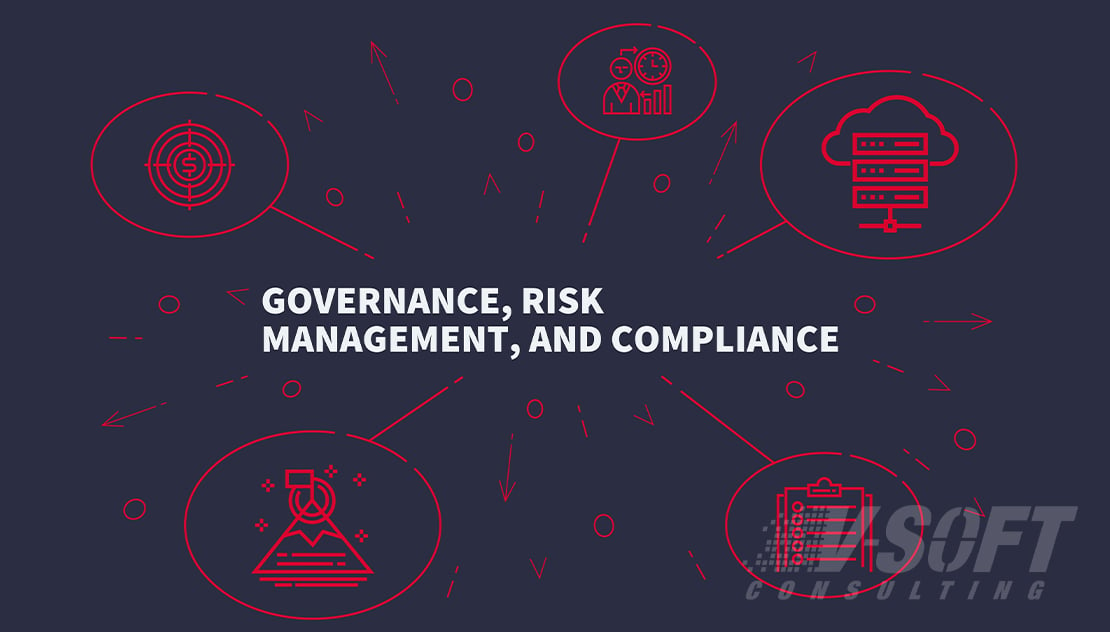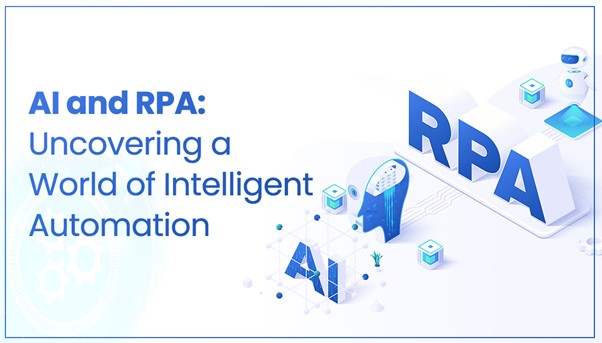Automation transforms legacy processes and drives digital transformation. To drive automation efforts, RPA has been a main strategy for many business functions to drive efficiency at optimal costs. One such critical business function is Governance, Risk, and Compliance (GRC). The Enterprise Governance, Risk Management, and Compliance Market was valued at $31.95 billion in 2020 and is projected to reach $71.56 billion by 2027, according to GlobalNewsWire.
GRC is a diverse and inter-reliant function intended to manage regulatory requirements. As businesses move many operations to cloud-based platforms, new risks and regulatory policies come into play, making it challenging for businesses to stay resilient and secure. RPA-based GRC automation assesses assets, manages policies, proactively handles risks, establishes control mechanisms, and performs audits of all GRC activities.
Improve GRC Efficiency with RPA
The average cost of compliance is $5.47 million versus an average of $14.82 million for noncompliance, which is an average difference of $9.35 million annually."
– Corporate Compliance Insights
As a part of digital transformation, various innovative tools and applications are deployed by businesses, while these deployments improve business capabilities, they also introduce unidentified risks. Businesses must understand these risks to utilize the capabilities of new tools and applications.
Multiple enterprise systems have information spread across different platforms, making it difficult to track down information. Moreover, most GRC workflows are manual, thereby reporting data on demand is nearly impossible. Also, businesses don't have the ability to easily report and prioritize issues.
RPA can automate and ensure the efficiency of GRC activities. RPA-based GRC automation can gather a vast amount of data across the organization, organize the information to increase transparency and accountability. The RPA-based GRC systems facilitate business continuity strategies and incorporate regulatory and compliance issues. This results in consistent business processes and avoids service outages and financial losses.

Figure: GRC Automation Process
Audit and Manage Risk Proactively
The accomplishment of GRC is mostly assessed based on its potential to reduce regulatory risks, incidents, or aspects that cause operational discrepancies. RPA bots fully integrate with the data management approach, RPA tools gather risk assessment data by continuously monitoring the business operations, perform risk assessments, categorize risk, estimate impact, and report a risk before its occurrence. This way risks are handled proactively.
Conflict-Free Compliance and Governance
Policies, regulations, and compliance procedures vary by location and industry. Different locations may find it difficult to adhere to different rules without disrupting their operations. That's why it's important to have a consistent yet agile approach to handling compliance and policy standards. RPA can be critical to building effective compliance and risk operations using automation. RPA-based GRC ensures continuous monitoring and auditing of GRC operations to identify any deviations in regulations, standards, laws, or other practices and ensures company policies are up to date.
Improved Stake Holder and Vendor Relations
Businesses expect their GRC framework to work with evolving operating ecosystems and adapt to any changes while also keeping the business resilient and risk-free. RPA-based automated GRC systems integrate various business systems, organizes data, and provide analytics that precisely locates inconsistencies to avoid risk.
Automated GRC ensures transparency to stakeholders of overall business operations while maintaining performance and security. Greater transparency improves governance results, which in turn paves the way to effective stakeholder and vendor management. This way RPA-based automation will position GRC as an active business partner and lets businesses make informed decisions at low risk.
GRC is one of the Top 5 best business processes to automate, learn about other great business automation opportunities here.
















